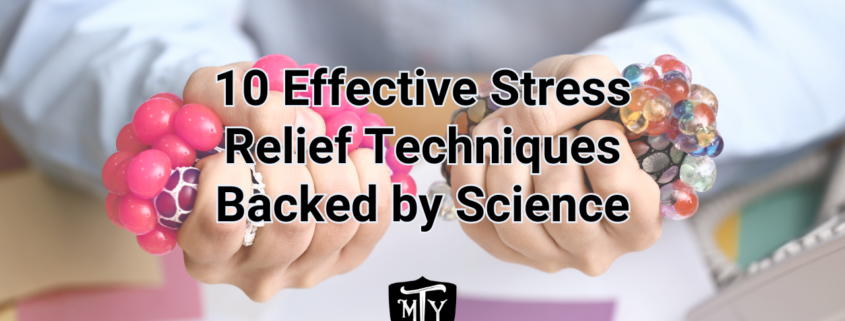10 Effective Stress Relief Techniques Backed by Science
10 Effective Stress Relief Techniques Backed by Science
In our fast-paced world, stress is an inevitable part of life. According to a detailed analysis by Medical News Today, stress affects our body and mind, potentially leading to long-term health issues if not managed properly. However, understanding and implementing effective stress-management techniques can significantly enhance your quality of life. Here are ten scientifically-backed methods to reduce stress today.
1. Understand Your Stress
Knowledge is power. Recognizing the causes of your stress, as noted in medical discussions, can empower you to make changes. Differentiate between ‘good’ stress, which can motivate you, and ‘bad’ stress, which can harm your health if it becomes chronic.
2. Develop a Morning Meditation Routine
Meditation has profound impacts on reducing stress by calming the mind and reducing inflammation in the body associated with stress, according to several studies. Start with just five minutes in the morning and gradually increase as you feel comfortable.
3. Create a Supportive Network
Engage with people who uplift you. As stress can stem from isolation, nurturing positive relationships can help you manage stress levels and provide emotional support during tough times.
4. Get Physical
Exercise is a powerful stress reliever. It increases endorphins, the brain’s feel-good neurotransmitters, and can mimic the effects of stress relief found in medications as per findings in health research.
5. Prioritize Sleep
Lack of sleep is both a cause and effect of stress. Aim for 7-9 hours per night, as recommended by health authorities. Establish a relaxing bedtime routine and consider techniques such as guided sleep meditations.
6. Balanced Diet
Incorporate a diet rich in antioxidants, lean proteins, and omega-3 fatty acids, which have been shown to reduce the symptoms of stress. Avoid overeating and limit caffeine and sugar, which can aggravate stress.
7. Time Management
Effective time management can help reduce stress. Plan your day in advance and prioritize tasks. Breaking big projects into smaller, manageable tasks can prevent feeling overwhelmed.
8. Mindfulness Practices
Mindfulness can shift your thoughts away from your worries. Engage in activities that ground you in the present moment, such as yoga or deep breathing exercises.
9. Cognitive Behavioral Techniques
Adjust your thought patterns. Practice identifying and replacing negative thoughts with positive ones. This technique, supported by psychological research, can reduce stress-induced emotional responses.
10. Professional Help
Sometimes, the best way to manage stress is to seek professional advice. Therapists can provide strategies and coping mechanisms that are tailored to your personal needs.
Conclusion
Stress management is not about completely eliminating stress but learning how to control it so it doesn’t control you. Utilize these tools actively and consistently to improve your health and well-being. Remember, if one method does not suit you, try another until you find what works best for you.
Resources
For more insights and revised strategies on managing stress, refer to the comprehensive data available on Medical News Today.




Leave a Reply
Want to join the discussion?Feel free to contribute!